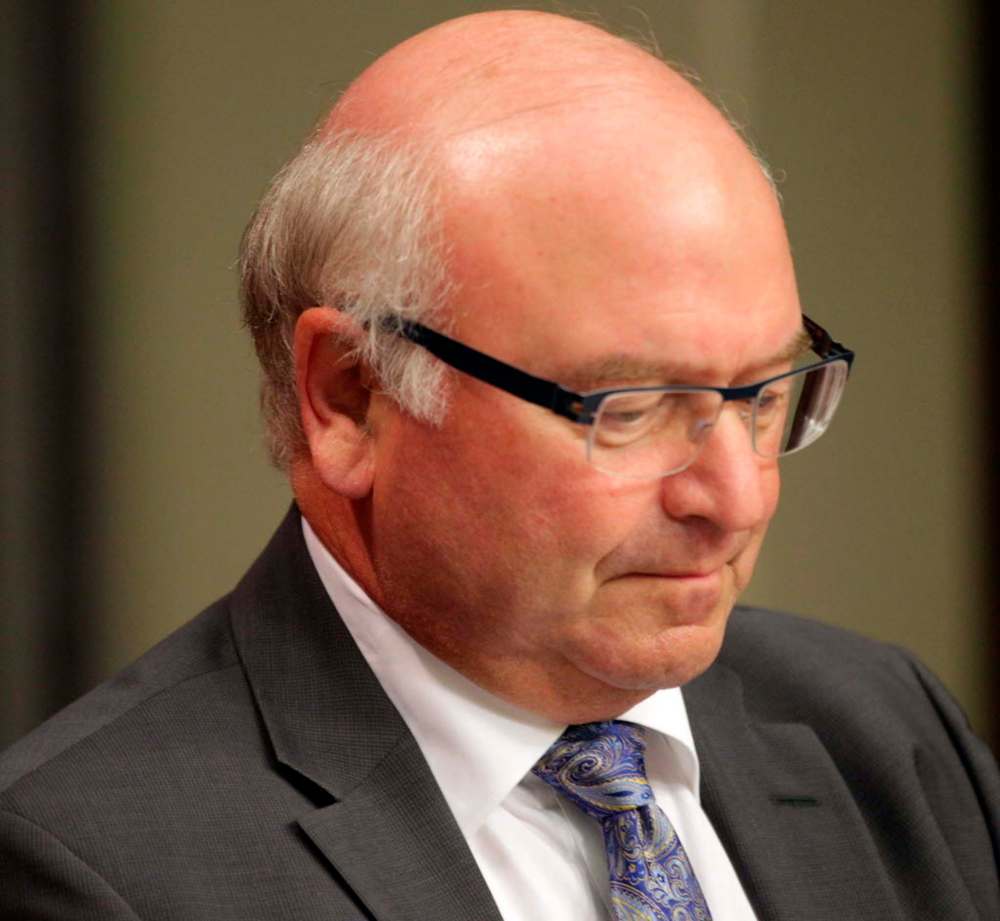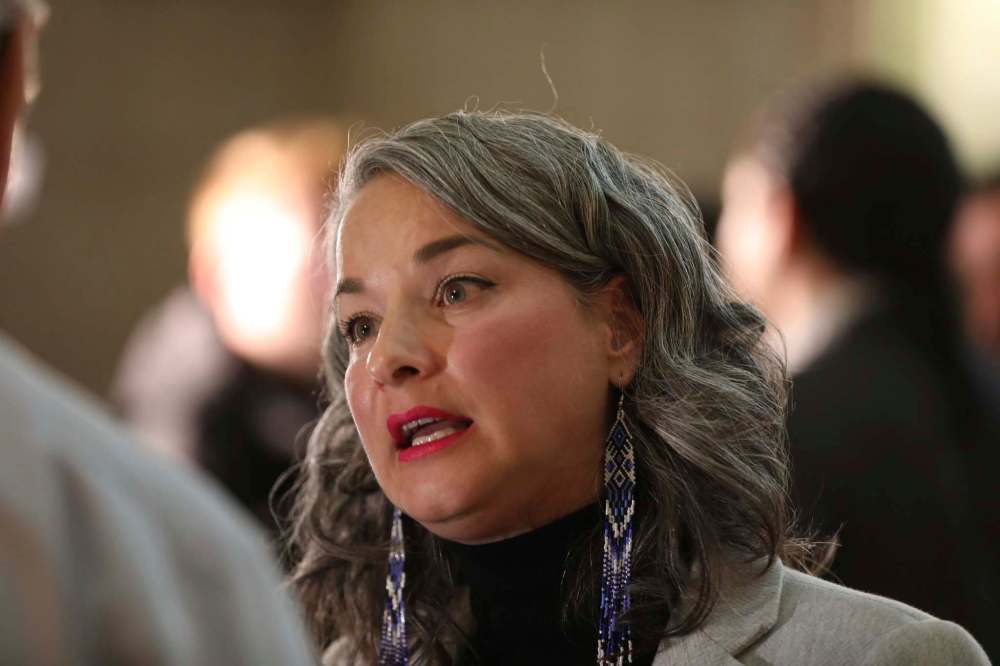Justice Minister tables missing police-watchdog reports after Free Press publishes series
Read this article for free:
or
Already have an account? Log in here »
To continue reading, please subscribe:
Monthly Digital Subscription
$0 for the first 4 weeks*
- Enjoy unlimited reading on winnipegfreepress.com
- Read the E-Edition, our digital replica newspaper
- Access News Break, our award-winning app
- Play interactive puzzles
*No charge for 4 weeks then price increases to the regular rate of $19.00 plus GST every four weeks. Offer available to new and qualified returning subscribers only. Cancel any time.
Monthly Digital Subscription
$4.75/week*
- Enjoy unlimited reading on winnipegfreepress.com
- Read the E-Edition, our digital replica newspaper
- Access News Break, our award-winning app
- Play interactive puzzles
*Billed as $19 plus GST every four weeks. Cancel any time.
To continue reading, please subscribe:
Add Free Press access to your Brandon Sun subscription for only an additional
$1 for the first 4 weeks*
*Your next subscription payment will increase by $1.00 and you will be charged $16.99 plus GST for four weeks. After four weeks, your payment will increase to $23.99 plus GST every four weeks.
Read unlimited articles for free today:
or
Already have an account? Log in here »
Hey there, time traveller!
This article was published 21/11/2018 (2575 days ago), so information in it may no longer be current.
Manitoba’s Justice Department made public Wednesday annual reports prepared by the province’s police watchdog, days after a Free Press report discovered they were missing.
Justice Minister Cliff Cullen said the Independent Investigation Unit of Manitoba’s last annual report (for 2016-17) wasn’t properly tabled because of “an administrative error.” Meantime, the 2017-18 report was tabled on time, he said.
The Free Press undertook the four-part series to examine the effectiveness of the province’s 3 1/2-year-old civilian-led police watchdog and its relationship with the Winnipeg Police Service.
Hundreds of documents obtained by the Free Press uncovered numerous roadblocks encountered by the IIU — from officers not co-operating, to disappearing complaints, to institutional pushback, to jurisdictional disputes — that have undermined the agency’s effectiveness.
IIU civilian director Zane Tessler alluded to those difficulties in the two annual reports that were made public Wednesday.

“The IIU continues to work with police agencies in Manitoba to ensure that information required to advance an investigation is provided to the IIU in a timely fashion,” he writes in the 2017-18 report.
“While the legislation outlines the obligations of police agencies and the IIU in an investigation, discussions continue between all parties to ensure issues are resolved or recommendations for legislative change are advanced.”
He made a similar observation in the report from the previous year.
“It is paramount that the investigative team is able to obtain the information it requires in order to advance an investigation to its next stage and ultimately to conclusion,” he wrote in the 2016-17 report.
“The IIU will continue to work with and educate all involved parties and police agencies about the role of the IIU and the roles and obligations of each person within an investigation.”
Cullen said Wednesday he wasn’t aware of the jurisdictional battles playing out between the IIU and the WPS until learning about problems this week.
‘Little point in laying a charge’
While Manitoba’s police watchdog has laid only seven charges in its 3 1/2-year history, in a handful of cases the Independent Investigation Unit has gathered enough evidence against officers that it has sought an opinion from Crown prosecutors.
On at least six occasions the Manitoba Prosecution Services decided there was “no reasonable likelihood of a conviction.”
While Manitoba’s police watchdog has laid only seven charges in its 3 1/2-year history, in a handful of cases the Independent Investigation Unit has gathered enough evidence against officers that it has sought an opinion from Crown prosecutors.
On at least six occasions the Manitoba Prosecution Services decided there was “no reasonable likelihood of a conviction.”
And when that happens, the IIU closes its file and clears the officer or officers being investigated.
“As civilian director, I may lay a charge directly if the necessary grounds exist…. However, if circumstances warrant, I may choose to refer a case to the Crown for an opinion,” IIU civilian director Zane Tessler said in a written statement.
“There would be little point in laying a charge only to have it stayed by the Crown.”
A recent four-part Free Press series revealed numerous roadblocks thrown up by police, both individually and institutionally, that have undermined the IIU’s effectiveness.
Those obstacles raise questions about how many of the six cases referred to the Crown would have resulted in criminal charges if the IIU had more power over Manitoba law enforcement.
On Tuesday, multiple provincial and municipal politicians expressed support for a review of The Police Services Act to see what changes – if any – need to be made to give the watchdog more bite.
Manitoba Liberal Leader Dougald Lamont called for a legislative overhaul to give the IIU the power to compel the evidence and testimony it needs during investigations.
A recent case flagged to the Crown’s office for a second opinion involved a man – 44-year-old Richard Kakish – who died in the Winnipeg remand centre.
The IIU closed its investigation into the death on Oct. 30 after the Crown said there was no reasonable likelihood the subject officers would be convicted.
On Nov. 16, the province announced an inquest had been called in to Kakish’s death. The manner of death listed on the autopsy report was homicide.
— Ryan Thorpe
He said the province is committed to reviewing the Police Services Act, which it promised in Tuesday’s throne speech, but wasn’t yet prepared to include the IIU.
“We haven’t heard that outcry from Manitobans yet,” he said. “I think it’s an opportunity for us to open the door, to have that discussion to see how (the IIU) might be more effective in terms of legislation,” Cullen said.
“Maybe in the short term there could be something, some other approaches that we may need to take.”
Details of the review, including a timeline, are still being worked out, Cullen added.
On Nov. 17, the Free Press published the first instalment in a four-part series detailing past battles between the police force and the oversight agency. The series continued Monday to Wednesday.
“Certainly this latest situation with IIU has just come to light, so we look forward to digging a little deeper on that side of it,” Cullen said.
The Justice Department oversees the IIU, which was established in 2015 in the aftermath of the provincial Taman Inquiry, which examined the botched investigation of an Winnipeg police officer who rear-ended a vehicle in 2005 while impaired, killing the woman behind the wheel.
In August, Cullen took over the justice portfolio from Heather Stefanson, who now oversees the Families Department. A spokesperson for Stefanson said the minister didn’t recall hearing about any issues between the IIU and WPS during her time in justice.
Tessler has met with Justice Department officials to discuss IIU issues, Cullen said. The minister said he looks forward to “having a more fulsome discussion” with Tessler soon.
NDP justice critic Nahanni Fontaine said it appears the IIU fell off the justice minister’s radar.

“Certainly I would respectfully say that if the minister of justice is only hearing about concerns that are being raised in the last couple of days, then I would suspect or I would suggest to you that that’s not been his priority, or even maybe the previous minister’s priority,” she said.
Fontaine worked with the Southern Chiefs’ Organization around the time the IIU was created and said she had hoped to see more Indigenous and civilian investigators working for the oversight body, but said she wasn’t sure what the current racial makeup of the 11-member investigative team is.
Seven members are former police officers, three are civilians and one position is vacant.
Before the IIU began operations, Fontaine said “there was a lot of faith and hope that Manitoba would join other jurisdictions and territories across the country at ensuring that there’s greater transparency” in police investigations. Five other provinces — British Columbia, Alberta, Ontario, Quebec and Nova Scotia — have dedicated oversight bodies.
“There is the ability to have a best practice IIU across the country if you have a minister and a government that’s willing to, first off, review it, look at it, pay attention (and) actually know what they’re doing,” she said. “And so far, we haven’t seen that.”
Liberal Leader Dougald Lamont raised the oversight difficulties in the house.
“One of the things that we did actually see in the report is that shootings are up, reporting is up, the IIU is drastically short-staffed,” he said. “And all of this stuff was basically not seen to be important enough to pay any attention to by the justice minister, which seems to me to be absolutely incredible.
“The idea that… they were going to do a police review and then they happen to discover a whole bunch of reports from the Independent Investigation Unit is pretty hard to understand or explain. And it also means that there’s a complete lack of oversight going all the way to the top… they seem to have been asleep at the wheel.”
– with files from Ryan Thorpe
jessica.botelho@freepress.mb.ca
Twitter: @_jessbu
History
Updated on Wednesday, November 21, 2018 7:43 PM CST: Final edit
Updated on Wednesday, November 21, 2018 9:36 PM CST: Updates story.
Updated on Wednesday, November 21, 2018 9:48 PM CST: Fixes typo
















